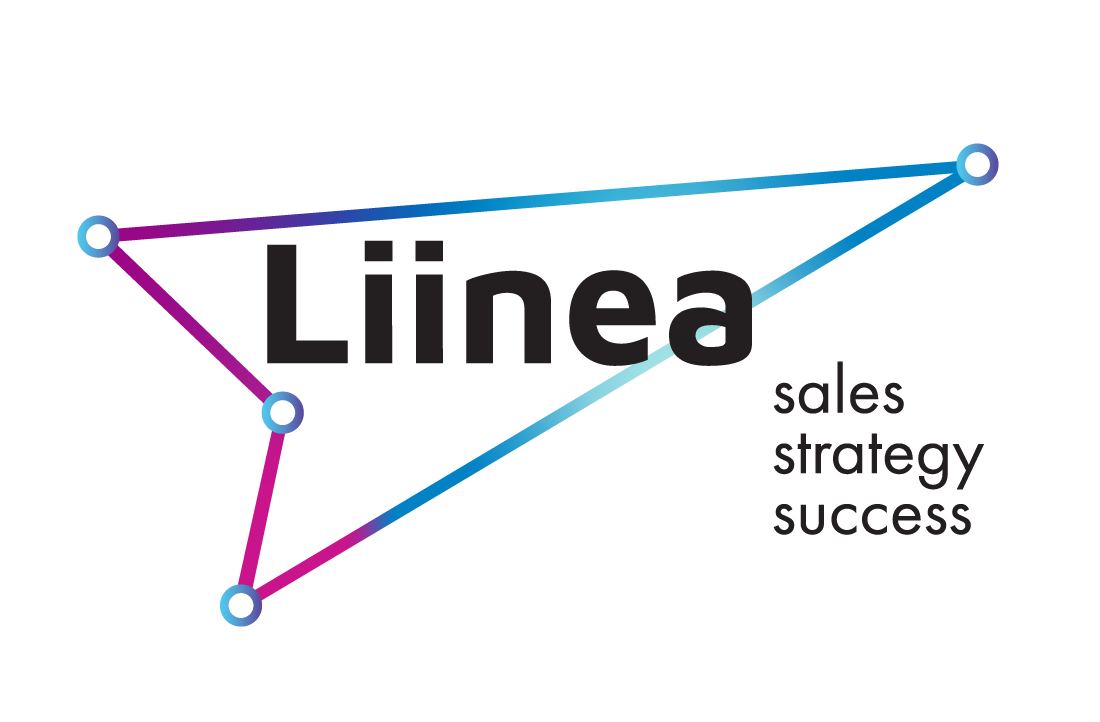Karina Collis
Three major b2b sales enablement trends
in 2021
in 2021
By Karina Collis, July, 2020
B2B sales are going through major transformations. The way companies sell and interact with their customers is becoming radically different from the B2B practices in use since the early 21st century and the first days of digital engagement.
Prospective clients are looking for a personalised experience like never before. B2B marketing is starting to look more and more like B2C marketing.
Digital technology allows interactions with prospects throughout
their entire customer journey. Is it fair to say that the role of a
salesperson diminishes, is it being replaced by a marketing
department armed with sales automation tools? Will AI, bots
and automation replace salespeople?
To answer this question, let's look at the three major B2B sales trends that will define sales enablement in 2021.
Prospective clients are looking for a personalised experience like never before. B2B marketing is starting to look more and more like B2C marketing.
Digital technology allows interactions with prospects throughout
their entire customer journey. Is it fair to say that the role of a
salesperson diminishes, is it being replaced by a marketing
department armed with sales automation tools? Will AI, bots
and automation replace salespeople?
To answer this question, let's look at the three major B2B sales trends that will define sales enablement in 2021.


Three major B2B Sales Trends
1
Massive Use of Sales Intelligence Technology
Technology has brought about significant changes into well-established B2B sales cycles. The salesperson's toolbox is now made of many sales intelligence tools that help sales teams identify, track, analyse and interact with existing and potential clients. Salespeople can now predict and respond to the demands of each prospect and stay relevant throughout the entire sales process.
At the core of this change are data and automation. Two ingredients that allow unprecedented levels of data analysis and predictability leading to better segmentation, better targeting, better communication.
Although there are numerous business-to-business sales tools, there are those that are better than the rest and choosing the right tools is key. (For prospecting tools for example, read "Top 10 B2B prospecting tools that will help achieve more with less").
At the core of this change are data and automation. Two ingredients that allow unprecedented levels of data analysis and predictability leading to better segmentation, better targeting, better communication.
Although there are numerous business-to-business sales tools, there are those that are better than the rest and choosing the right tools is key. (For prospecting tools for example, read "Top 10 B2B prospecting tools that will help achieve more with less").
Salesforce surveyed more than 3,000 sales professionals and published a "State of Sales" report with some interesting insights:

Data Analysis
Two thirds of sales teams now prioritise leads based on data analysis rather than "gut feel"

Personalisation
High-performing sales teams focus on personalising selling experience at scale

Connected View
81% of sales reps believe it is essential to have a connected view of data across the entire customer journey

Data-Driven Insights
High-performing sales teams base their sales forecasts on data-driven insights
2
Personalisation at the core of B2B sales
Today, prospective buyers have become experts at finding a lot of information online about the products and services they are looking for. So an impersonal, generic sales script will not help anymore to win them over.
B2C brands have been offering a personalised buying experience to prospective clients for a while. B2B prospects now expect the same.
So what exactly needs to be customised in B2B sales? Literally everything in the overall buying experience, from the communication channels and style to the insights and information delivered.
The main difference between B2B and B2C sales personalisation is that your B2B prospects will not be impressed with souvenirs branded with their names or postal birthday cards. B2B personalisation is about helping the prospect drive change to improve performance. The insights you deliver, the communication of these insights need to be well timed, regular over time and evolved from previous interactions (you don't want a prospect to ever having to explain what he is looking for more than once, even when speaking to different departments at your company. Make sure it doesn't happen in your sales process!).
B2C brands have been offering a personalised buying experience to prospective clients for a while. B2B prospects now expect the same.
So what exactly needs to be customised in B2B sales? Literally everything in the overall buying experience, from the communication channels and style to the insights and information delivered.
The main difference between B2B and B2C sales personalisation is that your B2B prospects will not be impressed with souvenirs branded with their names or postal birthday cards. B2B personalisation is about helping the prospect drive change to improve performance. The insights you deliver, the communication of these insights need to be well timed, regular over time and evolved from previous interactions (you don't want a prospect to ever having to explain what he is looking for more than once, even when speaking to different departments at your company. Make sure it doesn't happen in your sales process!).
“
79% of business buyers say it's absolutely critical to interact with a salesperson who is a trusted advisor — not just a sales rep — who adds value to their business
Customers now seek personalised interactions with vendors and expect their sales reps to learn, understand, and anticipate their needs — like personal consultants. Technology can now ensure that sales teams have a competitive edge when engaging with prospective clients. But interaction with a trusted advisor will win the deal.
3
Need for better trained and continuously coached salespeople
So are we at the point where sales people and sales automation are clashing, like in a good old "human against robots" movie? At one end, a personal connection still means a lot. At the other end, sales automation technologies can be seen as more efficient and cheap.
But, technology has no soul. In 2021, B2B sales still needs human intelligence and emotion to deliver sales. But salespeople need to up their game to deliver what technology cannot. That is where sales coaching plays a crucial role as sales enablement is a constant improvement process.
Lets look at email sales automation for example. Today, lead generation and email marketing platforms allow to send thousands of emails at once. But without a well through selection of prospect groups and a personalised communication based on the specific needs and challenges of each group, using these tools can turn against you and damage your brand's reputation.
But, technology has no soul. In 2021, B2B sales still needs human intelligence and emotion to deliver sales. But salespeople need to up their game to deliver what technology cannot. That is where sales coaching plays a crucial role as sales enablement is a constant improvement process.
Lets look at email sales automation for example. Today, lead generation and email marketing platforms allow to send thousands of emails at once. But without a well through selection of prospect groups and a personalised communication based on the specific needs and challenges of each group, using these tools can turn against you and damage your brand's reputation.

If there are any poor practices in your sales processes, the technology could only amplify them. To avoid that, successful sales organisations will invest more in sales training and coaching to turn rookie salespeople into smart captains of sales automation and trusted advisors to their prospects.
Today, the majority of B2B salespeople receive very little or no sales training and lack even the most basic sales skills from communications to sales tactics. And it has been shown that salespeople who receive continuous training achieve at least 50% better results on average. (Source: square2marketing)
Modern sales coaching is helping develop another significant trend which is collaboration. While in the past the "lone" sales wolf would "eat what he killed" on his own, today 77% of salespeople say selling collaboratively with other departments is important. Collaborative selling brings together sales, marketing, customer support, product and many other departments while technology will allow making this collaboration effective by connecting processes and displaying data across the entire customer journey.
Today, the majority of B2B salespeople receive very little or no sales training and lack even the most basic sales skills from communications to sales tactics. And it has been shown that salespeople who receive continuous training achieve at least 50% better results on average. (Source: square2marketing)
Modern sales coaching is helping develop another significant trend which is collaboration. While in the past the "lone" sales wolf would "eat what he killed" on his own, today 77% of salespeople say selling collaboratively with other departments is important. Collaborative selling brings together sales, marketing, customer support, product and many other departments while technology will allow making this collaboration effective by connecting processes and displaying data across the entire customer journey.
Final Thoughts
So will AI and robots replace salespeople? The reality is that the first generation of automation has already replaced simple, repetitive processes that used to be performed by junior salespeople (e.g. sending emails, aggregating data, managing calendars etc). But AI is not advanced enough yet to provide a genuinely human buying experience. So for now, technology is not destroying but rather creating new sales jobs, helping companies execute sales process seamlessly and at scale. In B2B sales, clients now expect a consultative service delivered by a salesperson that takes the role of a trusted advisor, so sales job are safe for some time to come.
Stay up to date with our other articles that offer helpful insights to close more deals:
>> Five B2B enterprise sales features every salesperson should master
>> 10 ways to generate leads for B2B sales
>> 5 sales insights to take your sales tactics to the next level
>> Five B2B enterprise sales features every salesperson should master
>> 10 ways to generate leads for B2B sales
>> 5 sales insights to take your sales tactics to the next level
We offer bespoke sales workshops and personalised coaching that cover: sales framework, sales process, sales pitch, strategic selling and many other sales topics.
Sales people who receive continuous training show
50% higher sales rates.
Please contact at karina@liinea.com
Sales people who receive continuous training show
50% higher sales rates.
Please contact at karina@liinea.com
Follow us on Linkedin for more sales insights
Sign up
to join our start-ups community and learn about new sales and marketing insights
to join our start-ups community and learn about new sales and marketing insights





